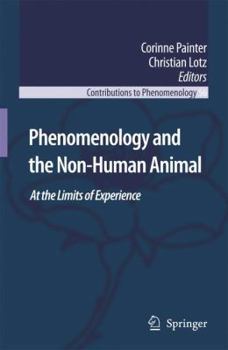Phenomenology and the Non-Human Animal: At the Limits of Experience
Acknowledgement. Introduction: Phenomenology and the Question of the Non-Human Animal; C.Painter, C. Lotz. Section I: Phenomenology, Ontology, and Anthropology. 1.1 Attunement, Deprivation, and Drive: Heidegger and Animality; G. Kuperus. 1.2 Being Beyond: Aristotle's and Plessner's Accounts of Animal Responsiveness; M. Oele. 1.3 How Not to be a Jellyfish: Human Exceptionalism and the Ontology of Reflection; T. Toadvine. Section II: Phenomenology, Psychology, and Language. 2.1 How Do Primates Think? Phenomenological Analyses of Non-Language Systems of Representation in Higher Primates and Humans; D. Lohmar.2.2 Phenomenology and the Study of Animal Behavior; E. Ruonakoski. Section III: Phenomenology and Ethics. 3.1 The Intentionality and Animal Heritage of Moral Experience: What We Can Learn from Dogs about Moral Theory; C.S. Brown.3.2 Appropriating the Philosophies of Edmund Husserl and Edith Stein: Animal Psyche, Empathy, and Moral Subjectivity; C. Painter. Section IV: At the Margins of Phenomenology. 4.1 The Human as Just an Other Animal: Madness, Disability, and Foucault's Bestiary; L. Carlson.4.2 The Intertwining of Incommensurables: Yann Martel's Life of Pi; J. Mensch. Notes on Contributors. Index.
Related Subjects
Philosophy




